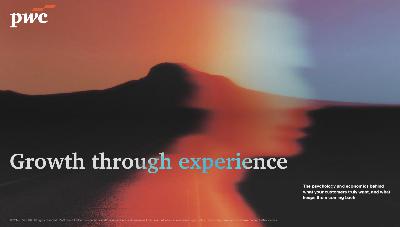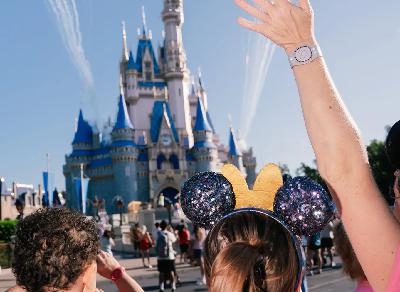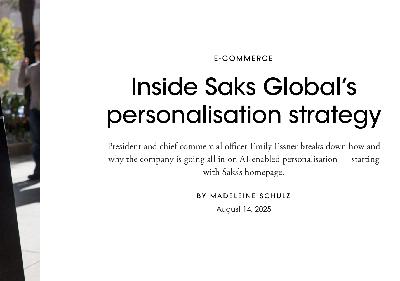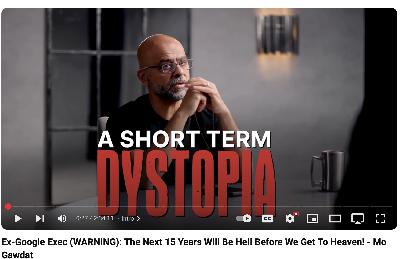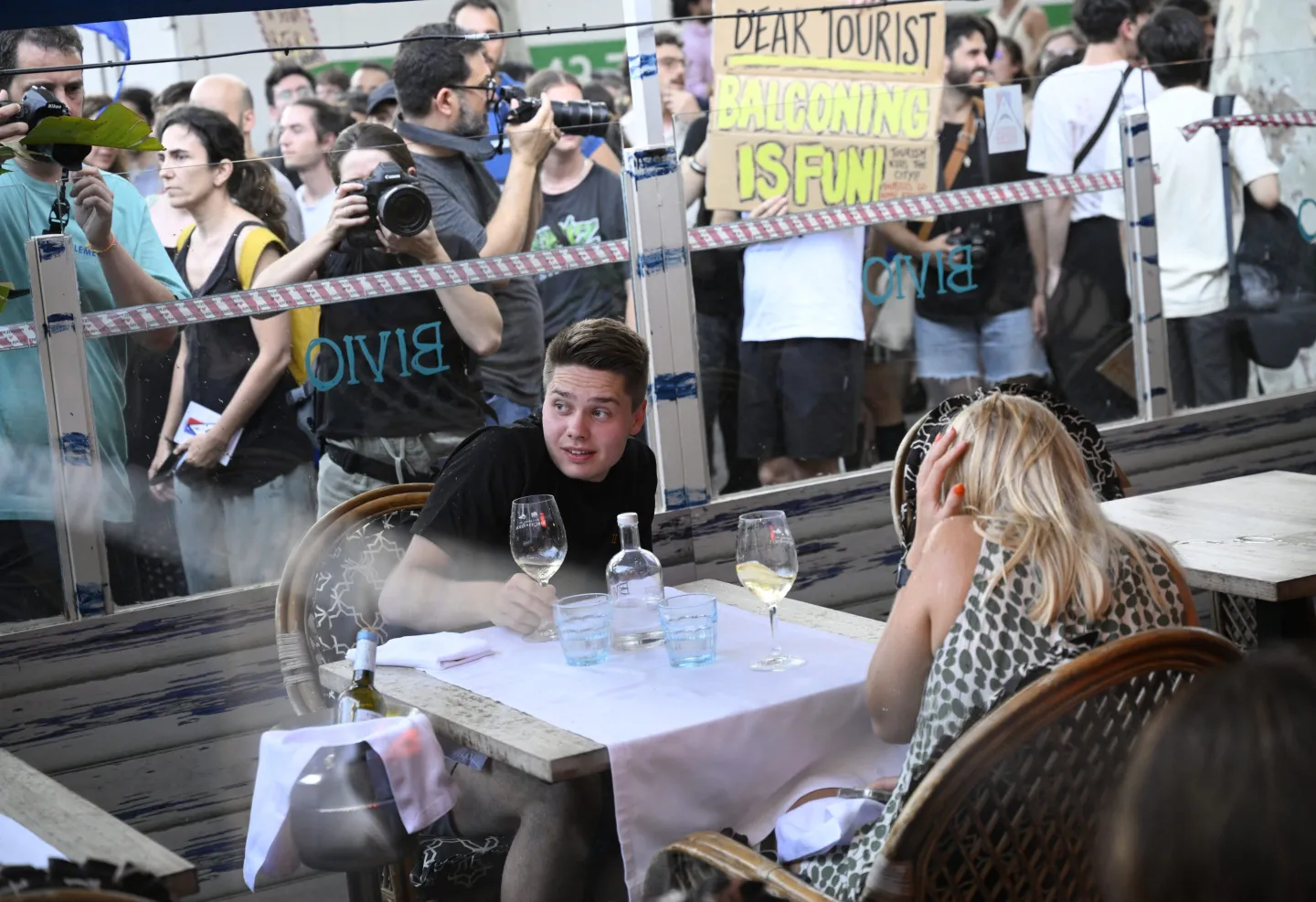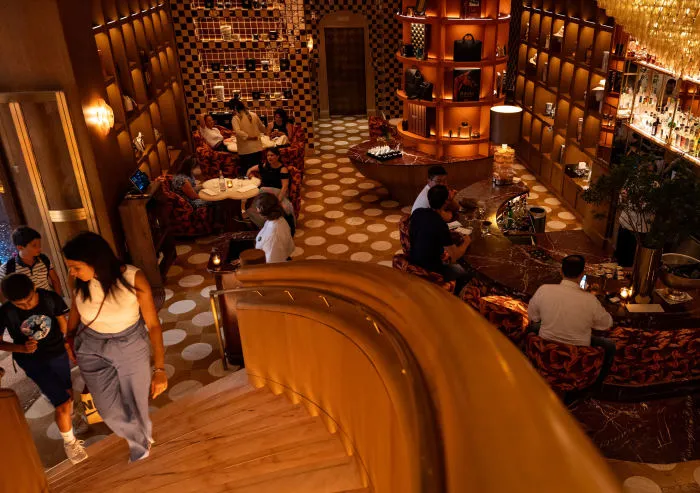Discover The Experience Strategy Podcast
The Experience Strategy Podcast

The Experience Strategy Podcast
Author: Dave Norton, Aransas Savas, and Joe Pine
Subscribed: 8Played: 162Subscribe
Share
© 2024
Description
With over 100 episodes, the Experience Strategy Podcast is that secret superpower that helps strategists around the world grow their business acumen. Your hosts, Aransas Savas, Joe Pine, and Dave Norton discuss the most important topics in the business world, but they do it by focusing on the experiences and transformations that customers attain.
123 Episodes
Reverse
The conversation explores the evolving perception of wealth and meaning, highlighting a shift towards purpose-driven initiatives among wealthy individuals like Musk and Gates. Taken from the article in the Economist, entitled the Ultra-rich Are Giving Up on Luxury Assets, it discusses how traditional symbols of wealth are losing significance as people seek deeper meaning in their financial pursuits. Takeaways People are starting to think differently about what is meaningful. Owning luxury items does not equate to personal meaning anymore. Wealthy individuals are focusing on greater purposes for their money. Musk and Gates exemplify this shift towards purpose-driven wealth. The current transitional period is reshaping our understanding of wealth. Eradicating world hunger and space exploration are new priorities. Meaning is becoming more important than material possessions. The conversation reflects a broader societal change in values. Wealth is being redefined in terms of impact rather than ownership. Purpose-driven initiatives are gaining traction among the wealthy. Chapters 00:00:12 Introduction to Experience Strategy 00:00:41 The Economist Article Discussion 00:01:21 Luxury Goods and Experiences 00:02:12 Premiumization and Ultra High Experiences 00:03:13 Value of Experiences Over Goods 00:04:18 Branded Hotels and Innovation 00:06:11 Transitional Period in Consumer Perception Read More: https://www.economist.com/finance-and-economics/2025/10/12/why-the-ultra-rich-are-giving-up-on-luxury-assets Podcast Sponsors: Learn more about Stone Mantel https://www.stonemantel.co Sign up for the Experience Strategist Substack here: https://theexperiencestrategist.substack.com
Two articles caught our attention. The first was in The Hollywood Reporter about a new movie theater concepts with private rooms and high end food in New York. The second was a story about the power of IMAX in the movie industry, per the Wall Street Journal. In this episode, Joe Pine, Aransas Savas, and Dave Norton discuss the evolving landscape of the movie theater experience, particularly in light of the pandemic's impact. They explore new concepts in Hollywood, such as premium movie theaters and IMAX, and how these innovations cater to changing consumer preferences. The conversation emphasizes the importance of customization, personalization, and the need for theaters to create engaging experiences that resonate with audiences. The hosts also provide valuable insights for experience strategists on how to adapt to these trends and enhance the overall consumer experience. Takeaways The pandemic significantly impacted the movie theater industry, leading to a decline in attendance. Premiumization is a key trend in the film industry, focusing on enhancing the overall experience. Customization and personalization are crucial for attracting audiences back to theaters. Consumers decide the 'when' or the situation, then watch the movie Theaters need to innovate and create engaging environments to compete with home viewing. Experience strategists should measure the money value of time (MVT) in their offerings. The integration of social components can enhance the movie-going experience. Chapters 01:23 Hollywood's New Movie Theater Concepts 02:38 The Impact of the Pandemic on Movie Theaters 04:47 Premiumization in the Film Industry 06:40 Customization and Personalization of Movie Experiences 08:57 Consumer Preferences Post-COVID 11:38 The Role of IMAX and Alternative Experiences 16:41 Innovations in the Theater Space 20:15 Key Takeaways for Experience Strategists Read More: https://www.hollywoodreporter.com/business/business-news/inside-metro-private-cinema-tim-league-movie-theater-1236311204/ https://www.wsj.com/business/media/imax-movie-release-trend-6f4587a2?st=PKpj1G&reflink=desktopwebshare_permalink Podcast Sponsors: Learn more about Stone Mantel https://www.stonemantel.co Sign up for the Experience Strategist Substack here: https://theexperiencestrategist.substack.com
In a recent WSJ article entitled "Travis Kelce Is Jumping In to Save Six Flags Just When It Needed It Most", the author notes that all theme parks are down, and Six Flags needs a rescue. So, we decided to unpack the why, the how, and the what to do to reenergize theme parks. The conversation goes from Travis' desire for more thrilling roller coasters to proposing new ideas for amusing people. The conversation highlights the need for themed environments to be well-maintained and the significance of pricing strategies in shaping customer perceptions. The hosts also emphasize the necessity for amusement parks to rethink their offerings to attract a broader audience and enhance the overall experience. Takeaways Travis Kelce's involvement with Six Flags aims to revitalize the brand. Traditional amusement parks are struggling due to lack of innovation. Celebrity endorsements alone cannot fix underlying experience issues. The upkeep of themed environments is crucial for customer satisfaction. Amusement parks need to diversify their offerings beyond roller coasters. Experiential innovations are essential to compete with new entertainment options. Customer experience should be prioritized over celebrity influence. Chapters 00:40 Travis Kelce and Six Flags: A New Era? 03:12 The Decline of Traditional Amusement Parks 07:35 The Importance of Experience Innovation 11:44 Revitalizing Legacy Brands 15:14 The Role of Celebrity in Experience Design 17:10 Rethinking Amusement Park Strategies 21:42 Final Thoughts and Recommendations Read More: https://www.wsj.com/business/deals/travis-kelce-six-flags-jana-1817b730?mod=Searchresults&pos=1&page=1 Podcast Sponsors: Learn more about Stone Mantel https://www.stonemantel.co Sign up for the Experience Strategist Substack here: https://theexperiencestrategist.substack.com
In this episode of the Experience Strategy Podcast, hosts Aransas Savas, Joe Pine, and Dave Norton discuss an article from the Wall Street Journal about High Point University in North Carolina, which has become a magnet for wealthy students. They explore how the university's focus on creating transformational experiences and life skills prepares students for their future careers. The conversation also touches on the role of parents in educational choices, the future of higher education, and the need for universities to have a strong point of view on their purpose and offerings. Oh and listen to Aransas' assessement of Love Shack Fancy. Takeaways High Point University is setting a new trend in education. Transformational experiences are key to preparing students for careers. Parents play a crucial role in educational choices. The focus should be on life skills, not just degrees. Higher education needs to adapt to changing societal needs. Universities must understand their customer base. A degree should be seen as an output, not an outcome. Colleges need to differentiate themselves in a competitive market. Transformational offerings can attract students and parents alike. The future of education may involve more practical skills and less traditional degrees. Chapters 00:00 Introduction to Experience Strategy Podcast 00:39 High Point University: A New Blueprint for Education 05:19 Transformational Experiences in Higher Education 10:26 The Role of Parents in Educational Choices 12:46 Cultural Fit in College Selection 16:48 The Future of Higher Education 21:03 Experiential Retail: Lessons from Love Shack Fancy Read More: https://www.wsj.com/us-news/education/north-carolina-college-high-point-amenities-30b0fc14?mod=hp_lead_pos7 https://www.loveshackfancy.com Podcast Sponsors: Learn more about Stone Mantel https://www.stonemantel.co Sign up for the Experience Strategist Substack here: https://theexperiencestrategist.substack.com
In this episode of the Experience Strategy Podcast, hosts Joe Pine, Dave Norton, and Aransas Savas discuss PwC's recent report on growth through experience. They explore the evolving definitions of customer experience, emphasizing the importance of trust and meaningful interactions. The conversation delves into PwC's four dimensions of exceptional experiences: coherence, personalization, engagement, and distinctiveness. The hosts critique traditional measurement methods in customer experience, advocating for a focus on meaningful experiences rather than mere service delivery. They also discuss the significance of managing moments of frustration and the concept of modes in customer journeys, concluding with insights from case studies in various industries. Takeaways Customer experience is fragile and requires trust. Meaningful experiences drive customer loyalty. Seamlessness is the baseline, not a value add. Exceptional experiences are defined by PwC as coherence, personalization, engagement, and distinctiveness. Measurement should focus on meaning, not just metrics. Managing frustration can create deeper customer relationships. Modes influence how customers interact with experiences. Retail must embrace experiential strategies to thrive. Trust is a predictor of growth in customer experience. The shift towards experience as a business strategy is gaining traction. Chapters 00:00 Introduction to Experience Strategy Podcast 02:17 Understanding Customer Experience and Trust 05:21 Defining Exceptional Experiences 09:41 The Importance of Measurement in Experience 12:10 Rethinking Value Creation and Trust 13:57 Managing Moments of Frustration 16:43 Modes and Their Impact on Experience 17:09 Case Studies in Exceptional Experiences 19:30 Conclusion and Future Insights Read More: https://www.pwcresearch.com/uc/images/GrowthThroughExperience_2025.pdf Podcast Sponsors: Learn how to inspire advocacy https://www.thecargoagency.com Learn more about Stone Mantel https://www.stonemantel.co Sign up for the Experience Strategist Substack here: https://theexperiencestrategist.substack.com
In this episode of the Experience Strategy Podcast, hosts Joe Pine, Dave Norton, and Aransas Savas discuss their recent experiences at the Arival Conference and The Collaboratives, focusing on the evolving landscape of travel experiences and the impact of AI on search and social proof. They emphasize the importance of human connection in the age of AI, the significance of time well spent, and the necessity for companies to have a distinct point of view to thrive in a competitive market. Takeaways AI searches are five times longer than traditional searches. Web crawlers for AI tools are limited and slow. Search can be considered an experience in itself. The importance of social proof is increasing in search results. Human connection is essential in the age of AI. A good tour guide can significantly enhance the experience. Companies must have a unique point of view to survive. The concept of time well spent is crucial for success. Sameness in offerings will be a challenge for businesses. Continuous learning and adaptation are vital for experience strategists. Chapters 00:00 Introduction to the Experience Strategy Podcast 01:29 Insights from the Arrival Conference 05:50 The Impact of AI on Search and Experience 12:11 The Importance of Human Connection 19:00 Time Well Spent: A New Perspective 23:18 Conclusion and Future Directions Podcast Sponsors: Learn how to inspire advocacy https://www.thecargoagency.com Learn more about Stone Mantel https://www.stonemantel.co Sign up for the Experience Strategist Substack here: https://theexperiencestrategist.substack.com
Adweek just did a write up on Uber's new ad campaign and we found reasons to concur with the article and take what Uber is doing farther. In this episode of the Experience Strategy Podcast, hosts Aranzas Savas, Joe Pine, and Dave Norton discuss Uber's new advertising campaign, focusing on its storytelling approach and the importance of experiences in marketing. They explore how Uber positions itself as a service that enables meaningful experiences, the emotional, social, and systemic jobs it could fulfill, and the broader implications for brands in commoditized industries. The conversation also delves into the significance of modes and situations in user experience, and how universal storytelling can resonate with diverse audiences. Takeaways Uber's new campaign emphasizes storytelling over traditional advertising. Experiences are crucial for differentiation in a commoditized market. Uber positions itself as an enabler of meaningful experiences. The campaign highlights reliability and dependability as key selling points. Emotional and social jobs are opportunity areas for Uber experiences. The storytelling is both universal and situational--and Tiktokky Modes and situations play a significant role in Uber experiences. Chapters 00:00 Introduction to Uber's New Campaign 01:40 The Power of Storytelling in Advertising 04:00 Experiences as Differentiation in Marketing 07:28 The Role of Uber in Enabling Experiences 09:47 Promises and Expectations in Service 12:06 Social and Emotional Jobs of Uber 13:47 Aspirational and Systemic Jobs to Be Done 16:35 Modes and Situations in User Experience 20:17 Universal Storytelling in Advertising 22:24 Conclusion and Future Discussions Read more https://www.adweek.com/brand-marketing/uber-drives-home-the-power-of-showing-up-in-new-on-our-way-ad/ Podcast Sponsors: Learn how to inspire advocacy https://www.thecargoagency.com Learn more about Stone Mantel https://www.stonemantel.co Sign up for the Experience Strategist Substack here: https://theexperiencestrategist.substack.com
In a recent HBR article, Yang Li shares his theory for how Pop Mart won young customers. But we think that fragmented attention is not what Pop Mart has mastered. Instead, they have mastered markets within/situational markets. In this conversation, the speakers delve into emphasizing the importance of customer engagement and customization. They discuss Pop Mart's innovative strategies for capturing consumer attention and fostering a sense of belonging among customers. The dialogue also explores the evolution of market segmentation, the significance of creating immersive experiences, and the need for brands to prioritize experience over traditional branding methods. Other brands discussed include Ffern, Lego, and Cracker Jacks. Takeaways Attention is one of the three currencies of the experience economy. It's not an economy. Pop Mart's success only partially lies in addressing fragmented consumer attention. Demographics are not effective for understanding individual consumers. Brands must cultivate surprise and delight and a sense of belonging. Timeless principles of experience design are still relevant today. Fusing real and virtual experiences can enhance customer engagement. Brands should focus on creating immersive experiences at home. The experience is more important than the brand itself. Packaged goods companies should prioritize customer experience in their strategies. Chapters 00:00 Understanding the Experience Economy 02:54 Pop Mart's Success in the Market 05:50 The Evolution of Market Segmentation 08:57 Creating Loyalty and Belonging 11:58 The Role of Surprise and Anticipation 15:03 Fusing Real and Virtual Experiences 17:57 Lessons from Pop Mart for Other Brands Read more https://hbr.org/2025/07/how-pop-mart-won-young-customers-in-a-fragmented-attention-economy Podcast Sponsors: Learn how to inspire advocacy https://www.thecargoagency.com Learn more about Stone Mantel https://www.stonemantel.co Sign up for the Experience Strategist Substack here: https://theexperiencestrategist.substack.com
Lil' Miquela and Mia Zelu have millions of followers and generate serious income, despite being created with artificial intelligence. A recent article in the NY Times caught our attention and we just had to weigh in on how AI influencers are changing the way customers think about what they can trust. In this episode of the Experience Strategy podcast, hosts Aransas Savas, Joe Pine, and Dave Norton delve into the intriguing world of AI influencers, exploring their rise, the complexities of trust and authenticity in the digital age, and the implications for the future of influencer experiences. They discuss the evolving nature of social proof, the role of empathy in AI, and how brands can navigate the changing landscape of consumer relationships. The conversation highlights the need for transparency and authenticity in experience strategies, as well as the potential shift towards hyperlocal influencers. Takeaways AI influencers are gaining popularity and generating significant income. Parasocial relationships with AI are becoming more common. Trust in AI influencers is complex and multifaceted. Authenticity is increasingly important in the digital age. Social proof is being redefined in the context of AI. The role of empathy in AI is a contentious topic. Brands need to be transparent about AI-generated content. Micro-influencers may become more valuable than traditional influencers. Understanding customer needs is crucial for effective marketing. The future of AI and human relationships is uncertain and thought-provoking. Chapters 00:00 Introduction to AI Influencers 02:44 The Rise of AI Personalities 05:54 Trust and Authenticity in AI 08:53 The Evolution of Social Proof 11:53 AI and Empathy: A Complex Relationship 14:48 The Role of Brands and Influencers 17:47 Lessons for Experience Strategists 20:46 The Future of AI Storytelling 23:43 Conclusion and Reflections Read more https://www.nytimes.com/2025/09/03/style/ai-influencers-lil-miquela-mia-zelu.html Podcast Sponsors: Learn how to inspire advocacy https://www.thecargoagency.com Learn more about Stone Mantel https://www.stonemantel.co Sign up for the Experience Strategist Substack here: https://theexperiencestrategist.substack.com
In The New York Times article written by Daniel Currell, the author/consultant contents that Disney's tiered system is designed to target affluent guests, not middle class people. In this episode of the Experience Strategy Podcast, hosts Joe Pine, Dave Norton, and Aransas Savas discuss the article about Disney's transformation from an egalitarian experience to a tiered system. They explore the implications of this shift on the middle class, the increasing value placed on experiences, and the desire for connection among visitors. The conversation delves into the role of services, time value, and the exclusivity of certain experiences, ultimately addressing the future of Disney and its expansion opportunities. This episode is brought to you by The Cargo Agency and Feedback Now. Takeaways Disney has shifted from an egalitarian mindset to a tiered system. The value of experiences has increased significantly over the years. Wealth impacts the amount of time one can spend enjoying experiences. Visitors seek connective experiences with loved ones. Services play a crucial role in enhancing the overall experience. Having multiple channels is a key strategy for growth. Club 33 represents the only exclusive experience in the park. Time is a critical currency in the experience economy. Disney's pricing strategy reflects the value of experiences. The future of Disney may involve expansion and innovation. Chapters 00:00 Introduction to the Experience Economy 00:26 Disney's Shift from Egalitarianism 01:44 The Value of Experience and Pricing 05:21 The Impact of Wealth on Experience 06:47 The Desire for Connection in Experiences 09:54 The Role of Services in Enhancing Experiences 12:03 Gamification and the Disney Ecosystem 15:47 The Exclusivity of Club 33 18:03 Time as a Currency in Experiences 21:18 The Future of Disney and Expansion Ideas Read more https://www.nytimes.com/2025/08/28/opinion/disney-world-economy-middle-class-rich.html?unlocked_article_code=1.iU8.Yl9x.HdJppkkpqYcr&smid=url-share Podcast Sponsors: Learn how to inspire advocacy https://www.thecargoagency.com Register for a free pilot program with Feedback Now https://marketing-info.feedbacknow.com/free-pilot Learn more about Stone Mantel https://www.stonemantel.co Sign up for the Experience Strategist Substack here: https://theexperiencestrategist.substack.com
In an August 14th Vogue Business article by Madeleine Schultz , Saks Global, the parent company of Saks Fifth Avenue, Neiman Marcus and Bergdorf Goodman, discussed its personalisation strategy and an investment of $600 million for it's new platform. The only problem is: based on the article, we think they got it wrong. In this episode of the Experience Strategy Podcast, hosts Aransas Savas, Joe Pine, and Dave Norton delve into the evolving landscape of personalization in retail, particularly focusing on Saks Global's new strategies. They discuss the importance of understanding customer modes, the role of contextual data, and the challenges faced by traditional personalization approaches. The conversation highlights the need for brands to meet customers where they are, especially in the age of social shopping, and emphasizes the integration of online and offline experiences to enhance customer engagement. This episode is brought to you by The Cargo Agency and Feedback Now. Takeaways Personalization is a form of customization for individuals. Saks has invested heavily in personalization strategies. Modes thinking is crucial for effective personalization. Contextual data is essential for understanding customer needs. Traditional personalization approaches may feel outdated. Social shopping is a growing trend in retail. Brands must meet customers where they are online. Integration of online and offline experiences is key. Personalization should not just be about demographics. The future of retail lies in innovative and brave strategies. Chapters 00:00 Introduction to Personalization in Retail 02:57 Exploring Hyper-Personalization Strategies 05:55 The Importance of Context in Personalization 09:05 The Role of AI and Machine Learning 11:57 Challenges of Traditional Retail Personalization 14:49 The Shift Towards Social Shopping 17:45 Integrating Online and Offline Experiences 20:48 Future Directions for Retail Personalization Read more https://www.voguebusiness.com/story/consumers/inside-saks-globals-personalisation-strategy?utm_source=chatgpt.com Podcast Sponsors: Learn how to inspire advocacy https://www.thecargoagency.com Register for a free pilot program with Feedback Now https://marketing-info.feedbacknow.com/free-pilot Learn more about Stone Mantel https://www.stonemantel.co Sign up for the Experience Strategist Substack here: https://theexperiencestrategist.substack.com
Q2 of the US economy was very kind to movie theaters who are still recovering from the pandemic. AMC's financial performance and the evolving landscape of cinema experiences suggests a rebirth for badly bitten sector. Thanks to A Minecraft Movie and other blockbusters, we are finally seeing the repurposing of movie theater. The hosts explore the importance of community and shared experiences in film, the role of content quality, and innovative strategies to engage audiences. The conversation emphasizes the need for theaters to enhance the overall experience to attract viewers back, highlighting the significance of immersive and communal elements in the movie-going experience. Takeaways The pandemic significantly impacted the experience sector, especially movie theaters. Improving the theater experience can lead to increased attendance. A Mindcraft Movie and other blockbusters created tremendous box office revenues. Content quality is crucial for drawing audiences back to theaters. Community experiences enhance the enjoyment of films. Innovative strategies can create shareable moments in cinema. Theaters need to focus on creating immersive experiences. Audience engagement is key to the future of cinema. Shared experiences can drive social media buzz and virality. The movie industry must adapt to changing viewer preferences. Designing for different viewing modes can enhance the cinema experience. Chapters 00:00 Introduction to the Experience Economy 01:15 The Impact of the Pandemic on Movie Theaters 03:33 The Premiumization of Movie Experiences 05:34 Challenges of Movie Theater Experiences 08:17 The Success of Community-Driven Films 12:30 Creating Shareable Experiences in Theaters 16:46 The Role of Experience in Movie Theaters 20:45 Conclusion and Broader Implications Read more https://www.wsj.com/business/earnings/amc-posts-narrower-loss-as-sales-surge-7c161073?st=pqPSLX&reflink=desktopwebshare_permalink https://screenrant.com/a-minecraft-movie-chicken-jockey-scene-audience-reactions-explained/?utm_source=chatgpt.com Podcast Sponsor: Register for a free pilot program with Feedback Now https://marketing-info.feedbacknow.com/free-pilot Learn more about Stone Mantel https://www.stonemantel.co Sign up for the Experience Strategist Substack here: https://theexperiencestrategist.substack.com
In this episode of the Experience Strategy Podcast, hosts Aransas Savas, Joe Pine, and Dave Norton discuss a recent episode of the Diary of a CEO featuring Mo Gawdot, who predicts a dystopian future driven by technology and AI. The conversation explores themes of transformation, the value of work, and the implications of AI on jobs and society. The hosts critique Mo Gawdot's techno-extremism and emphasize the importance of hope and purpose in navigating the future. Using insights from The Experience Economy, from Experience Strategy, and human behavior, they argue for a bright future for those focused on customer's needs and desires Takeaways Mo Gawdot predicts a 15-year dystopia followed by a utopia. Critique of techno extremism highlights the need for balance. Transformation is key to the future economy. Work provides purpose and meaning to individuals. AI will create new jobs, not eliminate them. Gawdot argues against hope and against innovation Embracing AI is crucial for future success. People are resources that drive innovation. Experience strategists need to develop a strategic point of view to thrive in the future Chapters 00:00 Introduction to the Experience Strategy Podcast 01:26 Mo Gawdot's Dystopian Predictions 02:54 Critique of Techno-Extremism 05:19 Transformation vs. Dystopia 10:24 The Role of Work in Human Dignity 14:41 AI and the Future of Work 18:59 Hope and Transformation 22:55 The Last Mile Issue in Automation 25:02 Future Skills for Experience Strategists Read more https://open.substack.com/pub/theexperiencestrategist/p/the-future-is-uncertain-and-bright?r=257bs3&utm_campaign=post&utm_medium=web&showWelcomeOnShare=false Podcast Sponsor: Register for a free pilot program with Feedback Now https://marketing-info.feedbacknow.com/free-pilot Learn more about Stone Mantel https://www.stonemantel.co Sign up for the Experience Strategist Substack here: https://theexperiencestrategist.substack.com
The Experience Strategy Podcast is available on all major podcast platforms for free. In this episode, the hosts discuss the complexities of tourism in Italy, particularly focusing on the balance between local experiences and tourist demands. They explore the impact of consumer behavior on travel, the need for sustainable tourism practices, and the importance of transformational travel that benefits local communities. The conversation emphasizes the necessity for destinations to adapt to changing trends and the value of holistic travel experiences that respect both tourists and residents. Takeaways In Europe, tourists are getting squirted by residents and Bezos and Sanchez's wedding makes locals mad. Italy's tourism faces challenges balancing local needs and tourist demands. The concept of slow tourism promotes quieter, more authentic experiences. Tourism should support local economies and respect residential areas. Consumer behavior in travel is increasingly influenced by social media. Destinations need to adapt quickly to changing trends and demands. Transformational travel can enhance community engagement and support. Tourist fees can help fund local infrastructure and services. A subscription model for travel experiences could foster repeat business. Travel experiences should cater to diverse traveler needs and preferences. Holistic travel experiences encompass cultural, environmental, and community aspects. Chapters 00:00 Exploring the Vibrancy of Italy 06:14 The Challenges of Mass Tourism 12:11 Adapting to Changing Consumer Demands 18:10 Transformational Travel and Community Impact 23:17 The Future of Travel Experiences Read more https://fortune.com/2024/07/09/barcelona-residents-fed-up-with-tourism-squirting-visitors-with-water-guns/ https://www.tourism-review.com/italy-draws-visitors-with-its-fancy-experiences-news15039 https://www.businessinsider.com/glad-we-did-not-buy-one-dollar-italy-home-2024-12 https://www.nytimes.com/2025/06/20/style/jeff-bezos-lauren-sanchez-wedding.html https://www.nytimes.com/2025/06/15/travel/europe-tourism-protests.html Podcast Sponsor: Register for a free pilot program with Feedback Now https://marketing-info.feedbacknow.com/free-pilot Learn more about Stone Mantel https://www.stonemantel.co Sign up for the Experience Strategist Substack here: https://theexperiencestrategist.substack.com
This episode builds on Dave Norton's article on Substack about Kate King's report in the Wall Street Journal: Can the French Reinvent America's Broken Department Store Model. Aransas Savas, Joe Pine, and Dave Norton discuss the evolving landscape of retail, particularly focusing on the experiential model as exemplified by the French department store Printemps. They explore the differences between traditional American department stores and European models, emphasizing the importance of creating engaging experiences that encourage customers to linger. The conversation also touches on metrics for measuring success in experiential retail and highlights case studies like La Varia Leo bookstore, while critiquing Macy's for missing opportunities to connect with consumers. Takeaways The American department store model is in decline. Experiential retail focuses on creating reasons for customers to stay. Time spent in a retail space correlates with increased sales. European department stores are thriving by offering immersive experiences. Retailers need to shift from product staging to experience staging. Metrics for success should include time well spent and revenue increases. Charging for experiences can turn marketing into a profit center. La Varia Leo bookstore successfully monetized its experience. Macy's has not adapted to the experiential retail trend. Retailers must innovate to compete with online shopping. Sound bites "It's about time well spent." "You want to hang out there." "Macy's has done none of this." Chapters 00:00 Introduction to the Experience Economy 02:46 The European Retail Experience 11:30 Transformative Retail Experiences 19:58 Metrics for Success in Retail 23:35 The Future of Retail Experiences Read more https://www.wsj.com/real-estate/commercial/can-the-french-reinvent-americas-broken-department-store-model-ff719a4a?st=9K6WB8&reflink=desktopwebshare_permalink https://theexperiencestrategist.substack.com/p/america-looks-to-europe-to-reinvigorate Register for a free pilot program with Feedback Now https://marketing-info.feedbacknow.com/free-pilot Learn more about Stone Mantel https://www.stonemantel.co Sign up for the Experience Strategist Substack here: https://theexperiencestrategist.substack.com
In this episode of the Experience Strategy Podcast, hosts Aransas Savas, Joe Pine, and Dave Norton discuss the economic power of experience strategy in various industries, focusing on an article in the Wall Street Journal on the Atlanta Braves and their innovative approach to sports business through the Battery Atlanta. They explore the concept of Disneyfication, where businesses create holistic experiences that enhance customer engagement and economic impact. The conversation also delves into the potential for reimagining healthcare facilities as experience-driven environments, emphasizing the interconnectedness of experiences, goods, and services in today's economy. Takeaways The Atlanta Braves have revolutionized the sports business model through experience strategy. Experience economy prioritizes experiences over goods and services. The Battery Atlanta serves as a model for mixed-use development. Sports venues can act as anchors for surrounding retail and experiences. Disneyfication is a viable strategy for various industries. Healthcare can be transformed into experience-driven environments. Cities can become experience hubs to attract tourism and business. The economic impact of sports venues extends beyond ticket sales. Creating holistic experiences can lead to community engagement and economic growth. The experience economy is reshaping consumer preferences and business strategies. Chapters 00:00 Introduction to the Experience Economy Podcast 02:11 The Atlanta Braves: A Case Study in Experience Strategy 12:47 Disneyfication: Transforming Industries through Experience 15:14 Reimagining Healthcare and Other Industries: The Disneyfication of Everything 20:31 The Interconnectedness of Experiences, Goods, and Services Read More: https://www.wsj.com/sports/baseball/truist-park-battery-atlanta-a3698b69?mod=Searchresults_pos1&page=1 Register for a free pilot program with Feedback Now https://marketing-info.feedbacknow.com/free-pilot Learn more about Stone Mantel https://www.stonemantel.co Sign up for the Experience Strategist Substack here: https://theexperiencestrategist.substack.com
In this episode, we dive into the intriguing world of integration therapies within Silicon Valley's tech culture. Inspired by a Wall Street Journal article, we discuss how psychedelics are becoming mainstream among tech workers, leading to the rise of integration therapists. These professionals help individuals process their experiences with substances like ayahuasca and psilocybin, aiming to combat burnout and unlock creativity. We explore the therapeutic potential and unintended consequences of this trend, including the phenomenon of workers leaving the industry after profound experiences. Takeaways Psychedelics are becoming mainstream in Silicon Valley. Integration therapy is essential for processing psychedelic experiences. Many tech workers face existential crises after psychedelic use. Therapeutic use of psychedelics is viewed positively by some. Reflection is crucial for meaningful transformation. Journaling can enhance personal agency and clarity. Travel can provide new perspectives for personal growth. Integration helps sustain the benefits of transformative experiences. Companies can benefit from encouraging reflection among employees. The conversation around psychedelics is evolving and complex. Chapters 00:00 Introduction to Psychedelics in Silicon Valley 02:09 The Role of Integration Therapies 05:57 Therapeutic Uses of Psychedelics 09:57 Moral Perspectives on Psychedelics 14:10 Transporting vs. Transformative Experiences 18:20 The Power of Journaling and Reflection 21:44 Encapsulation and Integration in Transformation 23:57 Conclusion and Reflections on the Discussion Read More: https://www.wsj.com/lifestyle/so-you-took-ayahuasca-the-therapist-will-see-you-now-eee7476b?st=8GRcX3&reflink=desktopwebshare_permalink Register for a free pilot program with Feedback Now https://marketing-info.feedbacknow.com/free-pilot Learn more about Stone Mantel https://www.stonemantel.co Sign up for the Experience Strategist Substack here: https://theexperiencestrategist.substack.com
In this episode of the Experience Strategy Podcast, hosts Aransas Savas, Joe Pine, and Dave Norton discuss the intersection of aging and technology, particularly focusing on how technology can be designed to support cognitive health as we age. They reflect on a personal article by Robert Fabricant in Fast Company that challenges the current approach to technology for the aging population, advocating for ambient adaptive technology that promotes dignity and agency. The conversation explores the need for AI design that accommodates cognitive decline, the importance of contextual awareness in technology, and the potential for transformational technology to enhance the quality of life for older adults. This podcast is brought to by Feedback Now, the world's best solution for real-time feedback. Takeaways: AI Technology should be designed for aging well. Cognitive decline requires specific support. Adaptive technology can enhance dignity in aging. Ideally AI should passively support people in cognitive decline Contextual awareness can improve how people engage with tool. Designing for accessibility benefits everyone. Transformational technology can maintain cognitive function. Data can empower users to understand their health better. The future of technology lies in integration with life systems. Chapters" 00:00 Introduction to the Experience Strategy Podcast 01:17 Reflections on Aging and Technology 04:12 The Role of Adaptive Technology 12:03 Contextual Experience Design 15:52 Superpowers and Cognitive Support 20:39 The Future of Health Technology 23:54 Designing for Resilience vs. Performance Read More: https://www.fastcompany.com/91350804/why-im-wishing-for-different-technology-on-fathers-day Register for a free pilot program with Feedback Now https://marketing-info.feedbacknow.com/free-pilot Learn more about Stone Mantel https://www.stonemantel.co Sign up for the Experience Strategist Substack here: https://theexperiencestrategist.substack.com
In this episode of the Experience Strategy Podcast, hosts Aransas Savas, Joe Pine, and Dave Norton discuss Airbnb's recent rebranding and its shift from a focus solely on home bookings to a more holistic approach that includes services and experiences. They explore the implications of this transformation for the travel industry, emphasizing the importance of authenticity, operational platforms, and the experience economy. The conversation highlights the potential for Airbnb to create unique, transformative travel experiences that resonate with customers' desires for connection and personal growth. Takeaways Airbnb is evolving from just home bookings to offering services and experiences. Transformative travel is about creating lasting changes in identity and aspirations. Airbnb's operational platform can help travelers manage their entire itinerary. Authenticity in travel experiences is key to perceived value. Experience stacking allows for unique offerings that enhance customer engagement. The shift from a sharing economy to an experience economy is crucial for value creation. Vetting experiences builds trust and enhances customer satisfaction. Airbnb's community aspect deepens the travel experience. The future of travel will focus on personalized and bespoke experiences. Airbnb's approach could raise the standard for the entire travel industry. Chapters 00:00 The Evolution of Airbnb: A New Era in Travel 03:24 Transformative Experiences: Beyond Just Stays 06:16 Operational Platforms: The Future of Travel Itineraries 09:12 Authenticity in Travel: The Airbnb Advantage 14:50 The Shift from Sharing to Experience Economy 17:33 Creating Value Through Experiences 20:34 The Role of Trust and Vetting in In Destination Experiences 23:27 The Future of Airbnb and the Experience Economy Read More: https://news.airbnb.com Register for a free pilot program with Feedback Now https://marketing-info.feedbacknow.com/free-pilot Register for the free membership in the Collaboratives here: https://www.thecollaboratives.com/contest Sign up for the Experience Strategist Substack here: The Experience Strategist A newsletter about creating value for customers, employees, and companies. By Dave Norton
In this episode of the Experience Strategy Podcast, hosts Aransas Savas, Dave Norton, and Joe Pine discuss fashion group Zara's innovative travel mode, which allows users to shop for products while traveling. They explore the concept of 'modes'—temporary mindsets and behaviors that influence customer experiences—and how Zara's travel mode can enhance customer engagement. The conversation delves into the importance of context, opportunities for improvement, and the potential for community building through social media. The hosts emphasize the dynamic nature of modes and the need for behavioral science to further explore this concept. Takeaways Zara's travel mode allows shopping while traveling. Modes are temporary mindsets that influence behavior. Travel mode operates without internet access, enhancing usability. Anticipating customer context is crucial for effective modes. Supporting customer modes can create more buying opportunities. Zara's travel mode is a key conversion strategy. Leveraging community and social media can enhance customer experience. Zara should focus on its strengths in fashion. Behavioral science should study modes more extensively. The dynamic nature of modes offers opportunities for brands. Chapters 00:00Exploring Zara's Travel Mode Initiative 06:01Understanding Human Modes vs. Technology Modes 08:45The Importance of Context in Customer Experience 14:49Evaluating the Effectiveness of Zara's App Features 17:43Leveraging Community and Social Media for Engagement 20:47The Role of Behavioral Science in Understanding Modes 26:46Future Directions and Listener Engagement




